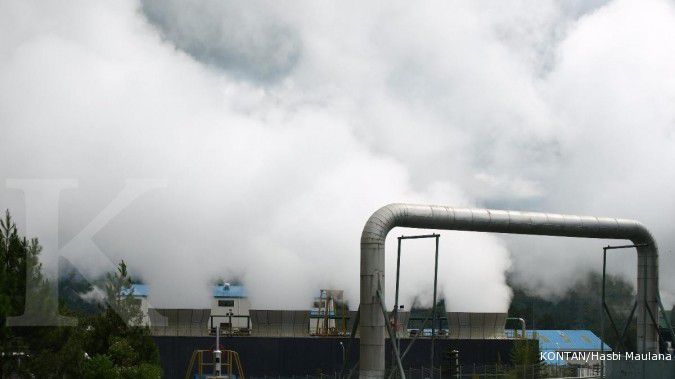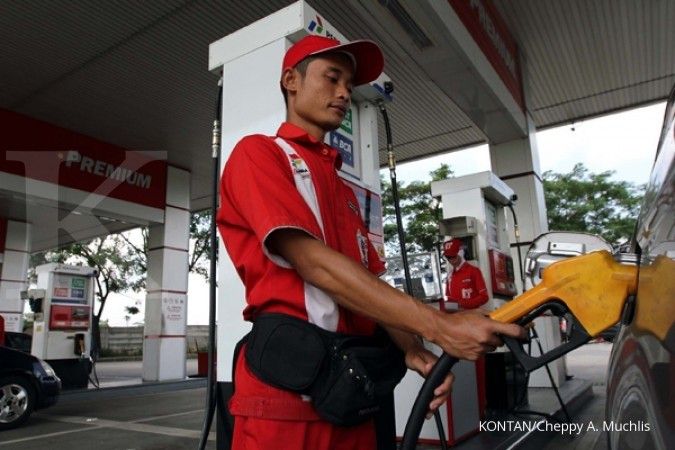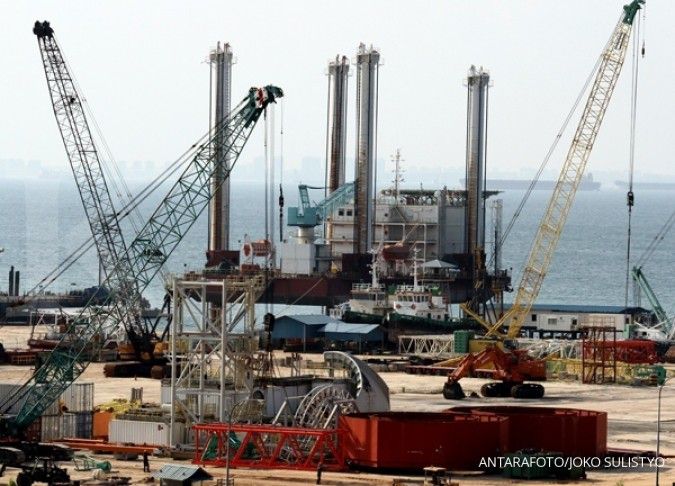JAKARTA. The president of the Asian Development Bank (ADB) says his assistance to the new Indonesian government will extend beyond hard cash, as the bank seeks to play a stronger role in improving transparency and governance in the development of the country’s infrastructure.
“We are not just financing the projects. We will also discuss with the authorities which project should be prioritized and which resources [utilized] to make it happen,” ADB president Takehiko Nakao said Monday in Jakarta.
The Manila-based bank has expressed interest in supporting and advising the new government on how to improve the existing tender and procurement system in order to foster transparency and accountability in executing government projects.
“In the case of Indonesia — because this is such an important and big economy — we’ll start delegating more power to [ADB’s] resident mission here and coordination could take place more closely,” Nakao said.
Nakao, the ninth president of the ADB, is slated to meet President Joko “Jokowi” Widodo and Finance Minister Bambang Brodjonegoro this week to discuss potential cooperation.
Jokowi’s ambitious economic development plans have caught the attention of international lenders like the ADB, the World Bank and the newly established, China-led Asian Infrastructure Investment Bank (AIIB).
The government’s National Development Planning Board (Bappenas) has estimated that Indonesia will need to invest at least US$550 billion in infrastructure projects between 2015 and 2019 to plug its infrastructure deficit.
However, Nakao insisted that the World Bank and the AIIB would not act as rivals to the ADB, where Japan has the largest voting power, and where a Japanese has held the position of president since its inception in 1966.
“[The AIIB] will complement the role of the ADB, so if it is established, we are happy to consider the appropriate [level of] cooperation,” he said.
Project financing is viewed as a secondary problem related to the development of infrastructure development in Indonesia, however, where many projects have been delayed or postponed not because of a lack of funds due to issues related to land acquisition, business permits, and legal certainty.
A case in point is the Japanese-funded, 2000 megawatt power plant project in Batang, Central Java, which was established through a public private partnership (PPP) scheme but which has been plagued by land-acquisition problems.
For the Indonesian government, it is important to provide both clarity and certainty for foreign investors in the PPP scheme, particularly on the project’s risk-sharing agreement between the private sector and the government, as well as its tariff system, said Nakao.
“PPPs can be a very important source of financing that makes the management of infrastructure-building more efficient,” he said. “PPPs have been discussed a lot, but implementation is not as speedy as expected.”
This year, President Jokowi plans to increase capital expenditure (capex) spending to Rp 290 trillion ($23 billion) from Rp 160 trillion last year.
However, questions linger regarding how increased budget allocation will translate into improved infrastructure development, as budget realization remains low. Last year, the government managed to disburse just 85 percent of last year’s capex allocation. (Satria Sambijantoro)
ADB president pledges stronger support for Jokowi
January 13, 2015, 10.54 AM
/2014/08/26/1294522073.jpg)
ILUSTRASI. Cara membuat postingan teks TikTok mirip Instagram story.
Source: The Jakarta Post
| Editor: Hendra Gunawan
Latest News
-
February 24, 2026, 03.38 PM
Eni to Reach Final Investment Decision for Indonesia Gas Projects Next Month
-
February 24, 2026, 01.00 PM
Asia Stocks Try to Steady after Wall Street Selloff Sims Mood
-
February 23, 2026, 04.50 PM
Wall Street Futures and Dollar Slide on Trump Tariff Tumult
-
February 23, 2026, 02.17 PM
Indonesia's Government Spending Jumps 26% in January 2026
-
February 23, 2026, 01.47 PM
Indonesia's Government Spending Jumps 26% in January
-
February 21, 2026, 06.00 AM
Indonesia's Pertamina to Maintain Bidding Process for US Energy Imports
-
February 20, 2026, 01.23 PM
Indonesia Secures 19% Tariff Deal with US, Palm Oil and Other Commodities Exempt
-
February 20, 2026, 08.33 AM
Indonesia, US Sign Agreement on Reciprocal Trade, Indonesian Ministry Says
-
February 19, 2026, 08.12 AM
Indonesia, Freeport Units Sign MoU to Extend Mining Permit beyond 2041












